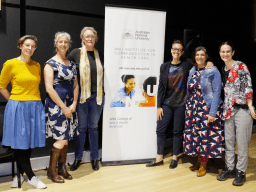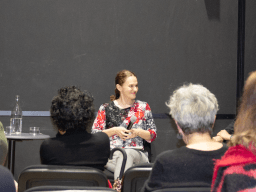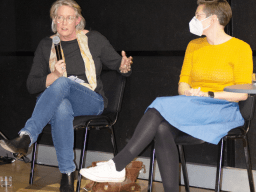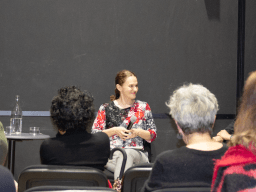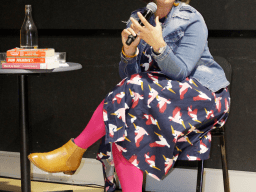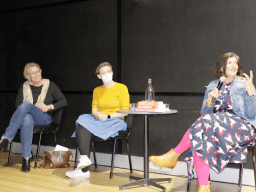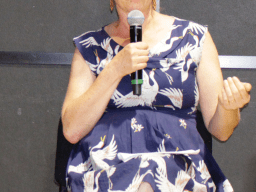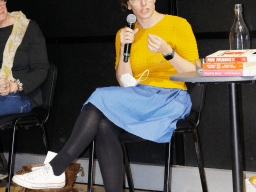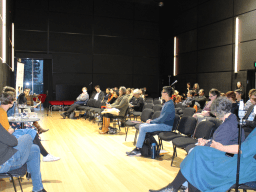Communication key to addressing gender bias in diagnosis, says panel at Lost in Diagnosis
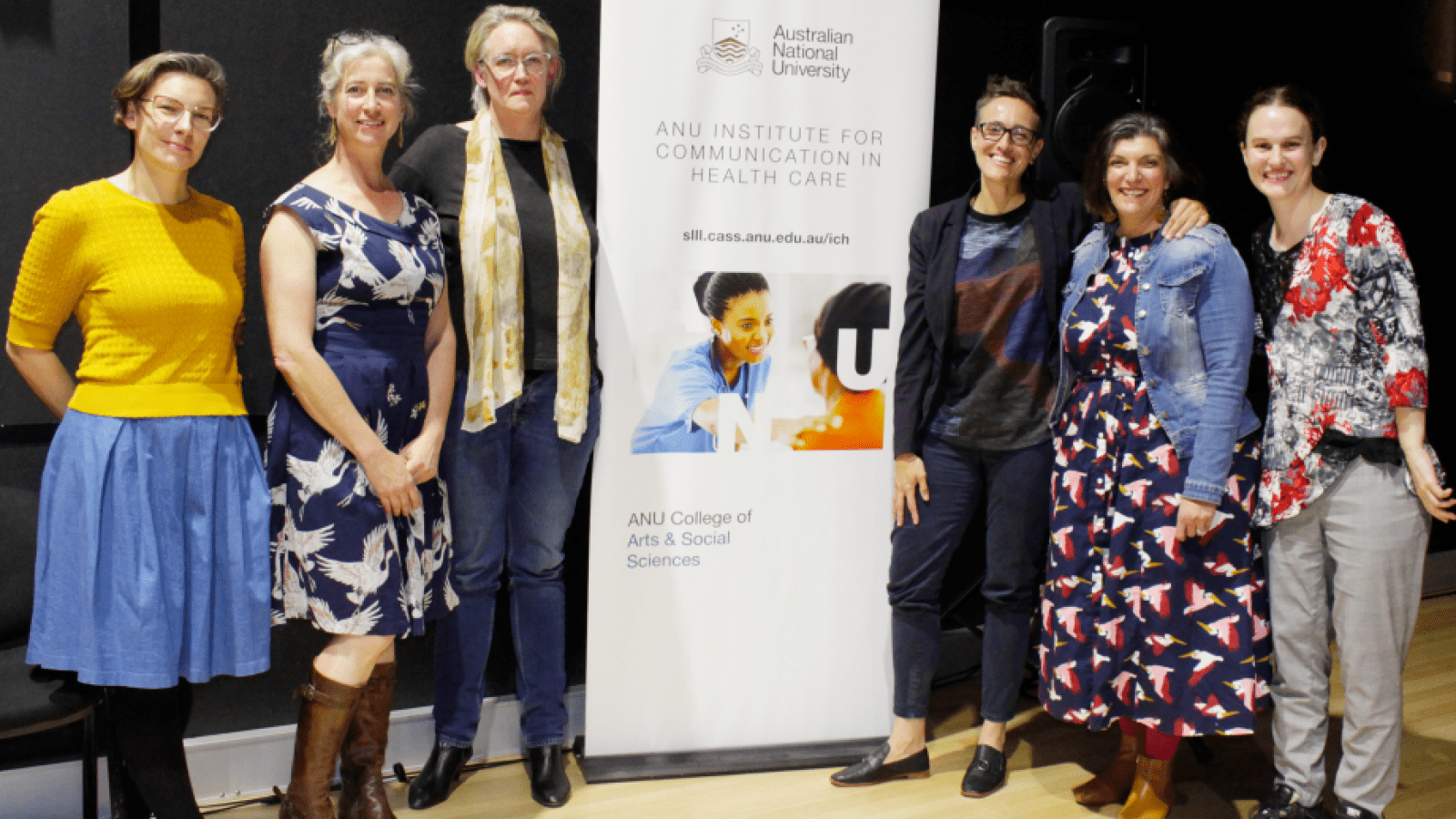
The Lost in Diagnosis event was part of the Wellspring series, a collaboration between The Street Theatre and the ANU School of Literature, Languages and Linguistics to foster immersive events that explore new depths of cultural enquiry and exchange. Photo by Neha Attre
Psycho-pathologisation, minimising symptoms by normalising and patient blaming are some of the experiences of gender bias that Jen Morris, patient safety advocate and survivor of serious diagnostic error, shared at the Lost in Diagnosis: Navigating the communication challenge of misdiagnosis panel discussion last week at The Street Theatre.
The Lost in Diagnosis panel, moderated by journalist turned doctor Dr Amy Coopes, combined patient insights into gender bias with perspectives from medicine, consumer advocacy and linguistics. The panel agreed on the importance of communication in the diagnostic encounter.
As Ms Morris explained, ‘minimising by normalising’ is treating a person’s experience of extreme or particularly problematic symptoms as normal. “For me, and I know for many people, particularly women, their experience of minimising by normalising is around so-called period pain. I had endometriosis and like most people with endometriosis the idea that period pain is normal is one of the things that’s done to reduce and minimise the experiences that women are having.”
GP and medical educator Dr Marisa Magiros argued that when it comes to conditions such as pregnancy and menstruation, we need to shift societal expectations that pain related to childbirth, child loss and periods should be endured as it’s ‘natural’.
“What is normal? Yes, some period pain, but debilitating pain where you are missing work or university or school is not normal. But women don’t share such experiences unless they’re asked. So I ask,” Dr Magiros said.
Reflecting on her experience as a cardiologist, Dr Arnagretta Hunter, Human Futures Fellow at the ANU College of Health and Medicine, said that listening was critical to patient care.
“Men and women experience similar symptoms in cardiovascular diseases which may include shortness of breath, chest pains etc. The difference is how we assess those people when they visit the doctor. For a 45-year-old woman with such symptoms, heart disease is not on top of the list. However, if a 55-year-old man visits the doctor with such symptoms, it is on top of the list because they are more likely to have heart diseases at a younger age compared to women. The concern in the system comes from the fact that we still need to take those symptoms seriously irrespective of gender. Listening to the patient is at the core,” Dr Hunter said.
Dr Mary Dahm, linguist at the ANUInstitute for Communication in Health Care, also stressed the importance of listening when it comes to women and diagnosis.
“You really need to listen. Listening is a multi-step process. … It involves listening to what patients are saying and naming what you have heard. So if someone tells you how they are feeling or even just why they are coming to the doctor today for what seems ‘normal’ period pain, that needs to be acknowledged,” Dr Dahm said.
“What people want is for someone to acknowledge why they’re there. So there’s this concept of the ‘sick role’ where you change from being a well person to a person seeking care. If you go to the doctor and this is not acknowledged, it can lead to people thinking, ‘every time I go to the doctor, they’re not listening to me. Why should I go again?’ Hesitancy to visit the doctor can lead to delays in diagnosis.”
Kate Gorman, Deputy Director of the ACT Health Care Consumers’ Association, agreed that bias and judgment can stop women from “getting in the door” of healthcare and seeking a diagnosis.
“By the time women actually get the care they need, conditions have progressed, damage to their health is worse than it needs to be. The upshot of all that is poorer outcomes. ”
Ms Gorman talked about how in line of work she often hears from people who “carry the mental health burden” of the bias and and judgement they experienced when accessing health care.
“What I see there is that the long term psychological effects of experiencing bias and judgment both in a systemic way and sometimes from individual practitioners as well, it leaves people with a layer of trauma that’s not about the health experience they’ve had, it’s about the way they were treated when they were vulnerable and sought care.”
The event was part of the Wellspring series, a collaboration between The Street Theatre and the ANU School of Literature, Languages and Linguistics to foster immersive events that explore new depths of cultural enquiry and exchange. As part of Social Sciences Week the event also helped to showcase the diverse range of social sciences research in Australia.

